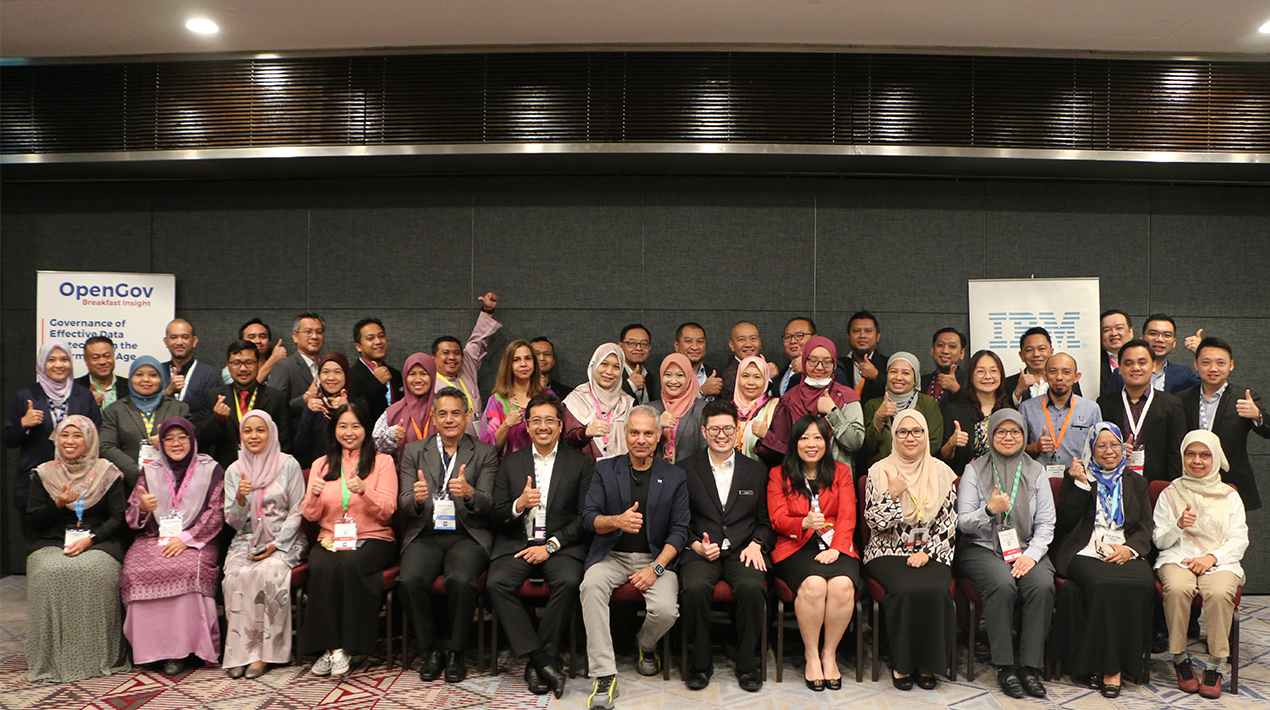
Protecting data efficiently is crucial in the information age, given the increasing value and prevalence of data as a resource. As individuals and businesses increasingly depend on digital technologies and data-centric operations, ensuring the privacy, security, and ethical utilisation of data has become a significant social and legal concern.
Establishing and enforcing extensive rules, guidelines and procedures to secure sensitive data and personal information is essential to effective data protection governance. It necessitates a multifaceted strategy that tackles many aspects of data protection, such as institutional policies, technical safeguards, organisational procedures, and individual rights.
The creation and implementation of stringent privacy rules and regulations are important components of data protection governance. These legal frameworks establish the obligations of people and organisations, laying the groundwork for the protection of personal data.
Technological measures play a critical role in data protection governance by safeguarding data against unauthorised access and breaches. This involves implementing secure storage techniques, authentication systems and encryption to enhance the security and integrity of data.
Organisational procedures and accountability frameworks are crucial for ensuring data privacy. By incorporating privacy impact analyses, data protection policies, and robust data governance frameworks, organisations can establish a strong foundation for safeguarding data and upholding privacy standards.
These measures enable organisations to assess and mitigate privacy risks, define clear guidelines for data handling, and establish accountability mechanisms to ensure compliance with data protection regulations.
To ensure data privacy, organisations must implement organisational procedures and accountability frameworks. This includes incorporating privacy impact analyses, data protection policies and robust data governance frameworks as essential requirements.
An effective data protection governance system should encompass methods for exercising data subjects’ rights, including user-friendly consent mechanisms and accessible avenues for addressing complaints and queries. Furthermore, in today’s globalised digital landscape, international collaboration and cooperation are vital for ensuring successful data protection regulation.
OpenGov Breakfast Insight on 23 June 2023 held at the DoubleTree by Hilton Putrajaya Lakeside aimed at delivering effective information and data governance policies, regulations, and frameworks to drive the quality, accuracy, and availability among the decision-makers from Malaysia’s public sectors.
Opening Remarks

Mohit Sagar, CEO & Editor-in-Chief of OpenGov Asia, acknowledges that data-driven organisations recognise the significance of data quality and the necessity for efficient information management and governance. Across the public sector, in all government activities, data is now widely regarded as a crucial national resource.
“Data is becoming increasingly important in Malaysia, particularly as the nation strives to establish its digital economy,” Mohit observes.
The government has launched several initiatives to promote the use of data and digital technology in a variety of industries, including e-commerce, finance, and healthcare. The National Big Data Analytics Framework, the Digital Free Trade Zone and the Malaysia Tech Entrepreneur Programme are notable efforts.
Malaysia is making substantial investments in digital infrastructure, expanding internet coverage and establishing data centres to facilitate cloud computing. These initiatives will empower businesses to efficiently acquire, store, and analyse data, enabling them to fully leverage its value.
Data security concerns are growing around the world, pushing governments and organisations to devise solutions for cyber-attacks and data breaches. In alignment with these trends, the Malaysian government has prioritised cybersecurity as a crucial aspect of its agenda.
“Data governance plays a vital role in ensuring the consistent, trustworthy, and ethical use of data, which has gained significant importance in Malaysia as organisations increasingly depend on data for their operations and decision-making processes,” Mohit emphasises.
While legislation exists in Malaysia to promote data governance and protection, stakeholders must actively uphold these principles to ensure data integrity and compliance with legal obligations.
Businesses and organisations must take responsibility for data security by installing security measures, reviewing policies regularly, and adhering to applicable regulations. This involves the use of encryption, access limits and the ongoing update of data protection protocols.
The increasing reliance of organisations across sectors on data for decision-making in Malaysia has underscored the growing importance of data literacy. Recognising this need, the government has initiated projects like the Malaysia Digital Economy Blueprint.
Launched in 2020, the Malaysia Digital Economy Blueprint envisions developing Malaysia into a high-income digital economy by 2030. It emphasises the significance of a controlled and well-managed digital transition to achieve efficiency in the country’s digital transformation.
The roadmap highlights key approaches, including enhancing workflow efficiency, upskilling civil servants in digital skills, harnessing the power of data for public services, and enhancing the quality of online services. It also prioritises the training of workers in digital skills, including data analytics, to enhance their ability to effectively utilise data in their respective fields.
Malaysia can cultivate a competent workforce and civil service cadre to ensure that data-driven decision-making helps the country’s digital transformation and economic prosperity. By investing in data literacy and governance, the nation can empower its workforce to use data effectively, unlocking new opportunities and driving innovation across various sectors.
The Malaysia Digital Economy Blueprint underscores the importance of leveraging digital technologies to enhance the efficiency and transparency of government services, promote innovation, and enhance access to essential services in rural areas.
Mohit is confident that Malaysia can unlock the transformative potential of the digital economy by aligning with the Malaysia Digital Economy Blueprint. By implementing its strategies, the country can drive productivity and improve service delivery resulting in beneficial benefits for enterprises, individuals and the government.
“By embracing digital transformation outlined in the blueprint, Malaysia can create a more inclusive and digitally empowered society, bridging the gap between urban and rural communities and driving socio-economic development throughout the country,” Mohit concludes.
Welcome Address

Catherine Lian, the Managing Director and Technology Leader of IBM Malaysia, conveyed her appreciation for the attendees, emphasising that their presence serves as a clear indication of their keen interest, unwavering dedication, and a strong commitment to driving innovation in Malaysia.
Malaysia’s digital economy continues to flourish and contribute to the country’s overall economic development, she notes. Its transformative potential opens up opportunities for innovation, entrepreneurship and the creation of new jobs, while simultaneously disrupting traditional industries and enhancing the way people live, work, and engage in business activities.
As per Catherine’s assessment, the business landscape in Malaysia offers promising avenues for growth. However, she acknowledges that there are challenges that present themselves. The primary hurdle lies in acquiring the essential skills and resources required for successful digital transformation.
The migration to the cloud stands out as a paramount objective, prioritised for its potential to reduce costs and enhance production efficiency. The primary focus lies in leveraging cloud services to rent processing capacity, thereby achieving financial savings. Additionally, optimising supply chains and sales operations are key goals that entail transitioning company applications to the cloud environment.
The adoption of cloud technology is expected to be spearheaded by critical sectors such as finance and government, driven by the goal of meeting customer demands, boosting revenue, and achieving cost efficiency. The telecommunications industry is also anticipated to follow suit in adopting cloud technologies.
Catherine added that data governance is vital for organisations to maintain data quality, comply with regulations, make informed decisions, ensure data security and privacy, facilitate data integration, manage risks, and build trust with stakeholders.
“By implementing robust data governance practices, organisations can harness the full potential of their data assets while minimising associated risks and maximising the value derived from data-driven initiatives,” Catherine reiterates.
High-quality data is essential for effective decision-making and meaningful analytics. Data governance establishes processes for data capture, storage, and analysis, enabling organisations to make informed decisions based on accurate and reliable information.
With the increasing frequency and sophistication of data breaches and cyberattacks, organisations must prioritise data security and privacy. Data governance involves implementing security measures, access controls, and encryption protocols to protect sensitive data from unauthorised access or breaches.
Because of its relevance in fostering digital transformation and technological developments in numerous sectors, IBM plays a key role in Malaysia. In this context, IBM positions itself as a strategic business partner, offering a range of solutions including infrastructure, technology platforms and optimisation services.
“IBM is a highly advantageous support for Malaysian enterprises, providing technological infrastructure as well as industry-specific business solutions,” Catherine says. “By utilising IBM’s resources and expertise, businesses can streamline their operations, increase their productivity and provide superior consumer experiences.”
With its profound understanding of diverse industries, including finance, telecommunications, government and others, IBM possesses the expertise to craft industry-specific solutions tailored to address the distinct challenges and requirements of Malaysia’s various sectors. This comprehensive grasp enables IBM to deliver targeted and effective solutions that cater to the specific needs of each industry.
IBM is devoted to research and development, propelling technological innovation and expanding the limits of possibility. IBM Malaysia’s participation in research and collaboration with local academic institutions and industry partners contributes to the development of new technologies and the expansion of the digital economy in Malaysia.
She encouraged meaningful conversations, challenge existing notions, and explore new possibilities to uncover innovative solutions, inspire positive change, and create a lasting impact on society.
“As we embark on this journey together, let us encourage open-mindedness, active participation and a spirit of camaraderie,” Catherine exhorts the delegates. “Embrace the power of collaboration and let us collectively shape a future that is filled with promise, progress, and prosperity.”
Technology Insight

According to Kitman Cheung, Chief Technology Officer, Data & AI – Asia Pacific, at IBM, the ongoing digital transformation journey persists despite the disruptions and obstacles encountered worldwide.
In today’s digital era, the availability of easily consumable data has become a necessity for organisations. It empowers them to make informed decisions, foster innovation, and maintain competitiveness in the rapidly evolving business landscape.
By embracing digital technologies and implementing effective data management practices, businesses can leverage the power of data to navigate change, identify opportunities, and achieve sustainable growth.
Kitman Cheung exemplified the case of Sonoma County, which confronted difficulties in effectively coordinating services across multiple agencies. In response to the strain on services triggered by the devastating October 2017 wildfires, Sonoma County initiated the ACCESS programme intending to enhance service delivery and promote self-sufficiency.
As part of this initiative, virtual assistants were introduced to improve coordination and provide additional support. IBM highlighted Sonoma County’s commendable endeavour in achieving a harmonious equilibrium between public health and economic vitality, showcasing their achievements through a video and a blog post.
“Engage to Serve” refers to the approach of actively involving and interacting with citizens to provide them with personalised and seamless experiences across various government services. The aim is to enhance the delivery of public services by understanding and meeting the specific needs and preferences of individual citizens.
By adopting an “Engage to Serve” mindset, governments can create a citizen-centric environment where services are tailored to meet the unique requirements of everyone. This involves utilising technology and data to gather insights about citizens, their preferences, and their behaviour. These insights enable the government to design and deliver services that are more targeted, efficient, and effective.
Personalisation plays a key role in the “Engage to Serve” approach. It entails customising the user experience based on factors such as demographic information, previous interactions and feedback. This can involve providing personalised recommendations, streamlining application processes, and offering proactive assistance to citizens.
Seamlessness is another important aspect as it aims to remove barriers and complexities that citizens often encounter when accessing different government services. This can involve integrating various government agencies and departments to provide a unified and consistent experience. Seamless services enable citizens to navigate through different services seamlessly, without the need to repeatedly provide information or face unnecessary bureaucratic hurdles.
The ultimate goal of “Engage to Serve” is to enhance citizen satisfaction, increase trust in government services and improve overall public service delivery. By focusing on personalised and seamless experiences, governments can build stronger relationships with their citizens, foster greater engagement and participation and ultimately create a more responsive and citizen-centric government.
Digitally transforming workflows and operations aims to streamline and optimise processes, automate manual tasks, and improve overall efficiency and productivity.
By implementing digital solutions and tools, organisations can better monitor, track, and report on compliance-related activities, reducing the risk of non-compliance and associated penalties. Digital transformation can enable organisations to identify areas of inefficiency, eliminate redundant processes, and optimise resource allocation, leading to significant cost savings.
Digital transformation often brings new opportunities for innovation, such as the implementation of advanced technologies, data-driven decision-making, and collaboration platforms. By embracing innovation, organisations can stay competitive, identify new revenue streams, and continuously improve their products and services.
By embracing digital transformation, organisations can emerge stronger from challenges, improve their workflows and operations, comply with regulations, reduce costs, and foster innovation, ultimately positioning themselves for long-term success and growth.
The advent of “DataOps” refers to the emergence of a new approach and set of practices for managing and delivering data within organisations. DataOps combines principles from DevOps (a software development methodology) and Agile methodologies to address the challenges of data management, integration, and delivery.
DataOps emphasises collaboration, automation, and continuous integration and deployment of data-related processes. It aims to streamline and accelerate the entire data lifecycle, including data acquisition, preparation, integration, quality assurance, and delivery.
By implementing DataOps practices, organisations can achieve faster and more reliable data pipelines, improved data quality, increased collaboration between data teams, and enhanced agility in responding to changing data needs. It also helps in aligning data initiatives with business objectives, enabling better decision-making and data-driven insights.
“The advent of DataOps represents a shift towards a more efficient and agile approach to data management, enabling organisations to extract more value from their data assets and drive innovation and growth,” Kitman notes.
Securing and protecting people, infrastructure and the nation while mitigating data collaboration risks across hybrid cloud environments is a complex and critical task in today’s digital landscape. Hybrid cloud environments refer to a combination of public and private cloud infrastructure that organisations use to store and process their data.
“AI is embedded in everyday life, business, government, medicine and more. At IBM we are helping people and organisations adopt AI responsibly,” Kitman highlights. “Only by embedding ethical principles into AI applications and processes can we build systems based on trust.”
Power Talk: Boosting Public Sector Power by Improving Data Governance
Improving data governance is key to enhancing the power and effectiveness of the public sector. By implementing robust data governance practices, governments can ensure the quality, accuracy and security of their data assets, leading to better decision-making and improved public services.
Effective data governance involves establishing clear policies, standards and procedures for data management, including data collection, storage, sharing and usage. It also involves defining roles and responsibilities, ensuring data privacy and security and promoting data literacy among public sector employees.
With strong data governance in place, governments can leverage their data resources to gain valuable insights and inform evidence-based policymaking. This enables them to address societal challenges more efficiently and effectively. Data-driven decision-making allows governments to identify trends, assess the impact of policies and optimise resource allocation.

Shamsul Izhan Bin Abdul Majid, Chief Officer, Technology and Innovation Sector, Malaysian Communications and Multimedia Commission (MCMC) revealed that they have implemented several steps to improve data governance in the technology and innovation sector.
These steps aim to ensure the effective management, protection and utilisation of data within the commission. Some of the key initiatives include: Establishment of Data Governance Framework, Data Classification and Categorisation, Data Privacy and Security Measures, Data Sharing and Collaboration, Capacity Building and Training, Compliance with Data Protection Regulations and Regular Data Governance Assessments
Shamsul feels that these initiatives demonstrate MCMC’s commitment to enhancing data governance in the technology and innovation sector. “By implementing these measures, the commission aims to promote responsible data management, protect individual privacy, foster innovation, and enable data-driven decision-making in the industry.”
The organisation has ensured that internal Data Governance practices are well managed, Among these initiatives are well-defined data governance frameworks that outline roles, responsibilities, policies and procedures for data management across the organisation. This structure helps ensure consistency and accountability in data governance practices.
MCMC has designated data stewards responsible for overseeing data governance within the organisation. Data stewards play a crucial role in managing data quality, integrity, and compliance, and act as custodians of data assets.
“MCMC will regularly review and enhance its data governance practices through periodic assessments, feedback mechanisms, and benchmarking against industry standards,” Shamsul elaborates. “This allows for continuous improvement and adaptation to evolving data governance challenges.”

According to Ryan Hardin, Head of Strategic Planning and Development, MyDIGITAL Corporation, the Malaysia Digital Economy Blueprint emphasises the importance of involving and encouraging all relevant departments within the public sector to improve the status of the data ecosystem.
The public sector has set up a Data Governance Council comprising representatives from relevant departments. This council serves as a central governing body responsible for developing and implementing data governance policies and strategies.
“The public sector aims to create a collaborative environment where all relevant departments actively contribute to and benefit from the improvement of the data ecosystem, as outlined in the Malaysia Digital Economy Blueprint,” Ryan explains.
Recognising and sharing success stories and best practices within the public sector encourages departments to learn from one another and replicate effective data governance approaches. This can be done through internal communication channels, workshops or conferences.
Ensuring robust data privacy and security measures is crucial for maintaining public trust and protecting sensitive information. The public sector must continuously enhance its data protection frameworks, implement strong cybersecurity measures and adhere to relevant regulations and standards.
Engaging and involving relevant stakeholders, including citizens, businesses, academia and civil society organisations in data governance efforts can lead to more inclusive and effective decision-making. The public sector should establish mechanisms for stakeholder consultation, feedback collection and collaborative data initiatives.

Catherine Lian, Managing Director and Technology Leader, IBM Malaysia proposes that the public sector should embrace digital transformation initiatives to enhance service delivery, improve operational efficiency, and increase citizen engagement. This involves adopting emerging technologies, leveraging data analytics and AI and modernising legacy systems.
Embracing open data initiatives will promote transparency and accountability. It is important to make non-sensitive government data accessible to the public and encourage collaboration, innovation and informed decision-making.
Establishing robust data governance frameworks and prioritising data security is crucial. Government must ensure compliance with data protection regulations, implement strong cybersecurity measures, and establish clear policies and procedures for data handling, storage, and access.
IBM offers a wide range of technology solutions tailored for the public sector, including cloud computing, artificial intelligence (AI), data analytics, blockchain, and cybersecurity. These solutions can help government agencies optimise their operations, enhance service delivery and improve decision-making.
IBM can assist in driving digital transformation initiatives within the public sector. They can provide expertise in modernising legacy systems, implementing emerging technologies and leveraging data to create more efficient and citizen-centric services.
IBM brings its expertise, technology solutions and global experience to help the public sector industry in areas such as digital transformation, data management, cybersecurity, innovation and skills development. Their advice and expertise can support government agencies in achieving their goals, improving service delivery, and driving positive societal impact.
Furthermore, robust data governance promotes transparency and accountability in the public sector. By maintaining accurate and reliable data, governments can enhance public trust and confidence. Citizens have a right to access and understand government data, and effective data governance ensures that data is readily available and presented in a meaningful and accessible manner.
Improved data governance also supports interagency collaboration and data sharing, enabling different government entities to work together more seamlessly. This integration of data across departments and agencies enhances coordination and allows for a holistic view of public services and programmes.
Additionally, data governance plays a crucial role in safeguarding sensitive information and protecting individuals’ privacy. Governments must establish stringent data protection measures and comply with relevant regulations to ensure the responsible and ethical use of data.
By prioritising data governance, governments can enhance their capabilities, increase their efficiency, and deliver better outcomes for their citizens. It empowers the public sector to harness the full potential of data and technology, driving innovation and positive change in society.
To ensure the effective management of data, it is essential to establish robust data governance frameworks and give paramount importance to data security. This involves prioritising compliance with data protection regulations, implementing strong cybersecurity measures, and establishing clear policies and procedures for data handling, storage, and access.
Closing Remarks
Catherine appreciated the presence of the participants and acknowledged their valuable participation, insights and opinions. The robust discussions are ideal for learning and growing together.
She reiterates that IBM is eager to collaborate with government agencies through public-private partnerships to co-create and implement solutions that address specific challenges and drive socio-economic development.
Catherine strongly believes that citizen-centric service delivery should be prioritised by understanding the needs and preferences of citizens. This can be achieved by leveraging technology to offer personalised and convenient services, enhancing accessibility, and establishing efficient communication channels with citizens.
By placing citizens at the centre of service delivery, government entities can enhance user experience, promote satisfaction and ensure that services effectively meet the expectations and requirements of the people they serve.
Catherine advocates for fostering a culture of innovation and experimentation within the public sector. This entails piloting new technologies and approaches, embracing a mindset that allows for learning from failures and iterating on successful initiatives.
By adopting this approach, the public sector can continuously improve services and processes, drive innovation, and effectively respond to evolving challenges and opportunities. It encourages a proactive and adaptive approach to delivering more efficient and effective public services
Mohit reiterates that collaboration within the public sector and with external stakeholders is essential. Technology partnerships foster an environment of collaboration, idea-sharing and innovation.
By bringing together different perspectives, expertise and resources, partners can collectively generate new ideas, explore novel approaches and drive innovation. This collaborative environment can lead to the development of breakthrough solutions and help organisations stay ahead in a rapidly evolving technology landscape.
“By leveraging the strengths and capabilities of technology partners, organisations can drive growth, competitiveness, and success in the digital era,” Mohit concludes.
















